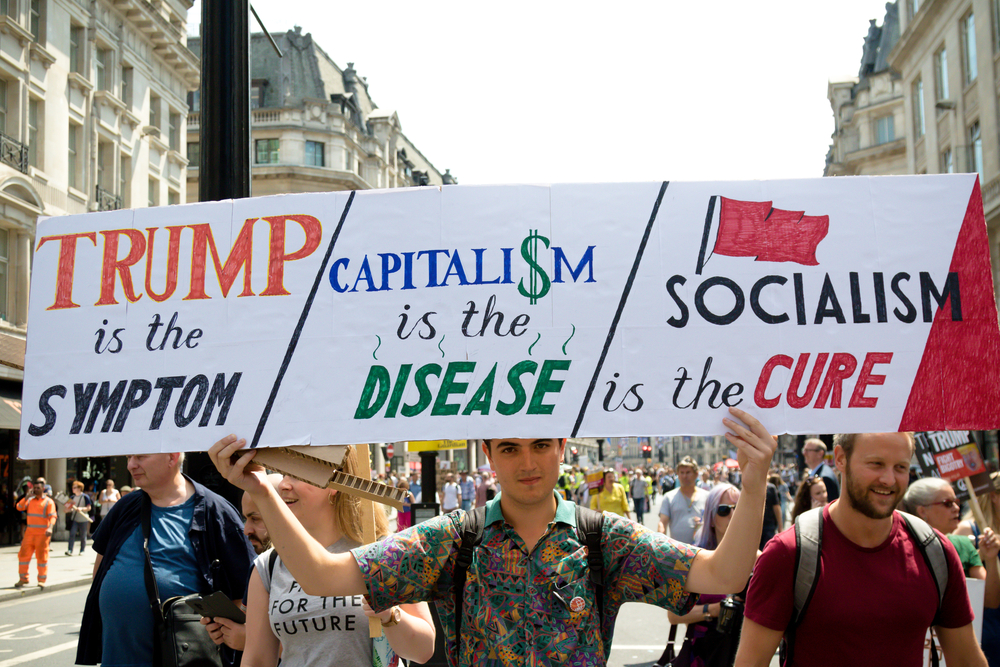
Over the last two decades, socialism has been galloping into the mainstream of policymaking and youth culture. College students flirt with the idea so much that almost 40% show some form of positive bias toward socialism. This bias is linked to increased taxes, more regulation, and the implementation of social policies to protect minorities. Yet it seems that the Left has not been able to reconcile itself with a particular issue- charity.
Charity is the voluntary action of donating, giving, or even gifting capital to another person without the expectation of profiting from such action. Although it is a simple concept at first, its existence implies that there are ways for the private sector to solve specific issues without the need for governmental intervention. This fact is counterproductive for some political agendas related to resolving social problems through state intervention. If we assume that people can solve problems through charity, why would we require the welfare system?
The moderate progressives would say that socialism is perfectly compatible with philanthropy as long as the welfare state sufficiently covers the poor. One of the most cited case in this regard is when the government of Cuba sends doctors abroad to help other countries with natural disasters or diseases like the COVID-19 pandemic. On both of these occasions, the Cuban administration sent doctors abroad without expecting to receive anything in exchange. Even when the island is under a commercial embargo, the Cuban regime can still help alleviate other nations’ harsh circumstances.
Although Cuba sends doctors abroad, this is far from “charity.” Cuba generated 11 billion dollars in revenue from the export of its medical services. Indeed, this perfectly illustrates that more than socialized philanthropy, sending doctors abroad is a business. Moreover, the conditions Cuban doctors work under are abysmal. They only receive 5 to 20 percent of the money Cuba makes from their labor. The government is profiting and exploiting its employees more than doing charity. On practical grounds, it is simply outrageous to call this philanthropy.
Governments, by definition, are incapable of charity. Government’s existence implies coercion; therefore, any course of action they proceed to is policymaking, not charity. Moreover, because most of the government’s revenue comes from taxes acquired through coercion, it is easy to say that the money is charity even when the payer didn’t have an option. Charitable donations must come voluntarily from private individuals themselves.
Thus, no charity can occur under a purely socialist regime. Firstly, charity throughout history has largely been provided by thee groups of people: the most affluent, associations, and churches. These three were outlawed and prohibited in the USSR and most of the communist countries of the twentieth century. According to Julia Rubin: “Communism not only outlawed private and church charities, but it also left psychological scars that hamper charities now.” Every private association and every church was strictly banned, and everyone caught in philanthropic activities was imprisoned. If private property does not exist in communism, there is no way charity could exist since the premise of charity is the voluntary donation of capital owned by individuals or groups thereof.
However, in the mainstream view, social democracy or democratic socialism could be compatible with altruism; after all, the USSR was not necessarily practicing “real communism.” Consequently, “light” forms of socialism could be consistent with the free market.

This is wildly inaccurate when it comes to theory. Robert Nozick solved this distribution debate 48 years ago. According to Nozick, and the logic of his Wilt Chamberlain analogy in Anarchy, State and Utopia, if the state would like to achieve a particular pattern of the distribution of wealth or income, it would have to intervene to such a degree in society that the government would impose a dictatorship. Nozick argues that all transactions can distort the wealth pattern; thus, commerce would have to be regulated and prevented altogether. Now, Nozick was referring to for-profit transactions, where it was expected that people could benefit from the fruits of their labor. However, the same case applies to charitable exchanges, where one party gives capital away without expecting anything back. Charity, then, can and will affect the wealth pattern. So, if the Left insists that free-market transactions would not exist under socialism, it is the same for charity.
Charity is now on that long list of things that would be prohibited under socialism, along with profits and free speech. In that system, where social care is purported sufficient for everyone to be secure, altruism and philanthropy would be ignored or outlawed. Or, as Murray Rothbard said, “It is easy to be conspicuously ‘compassionate’ if others are being forced to pay the cost.” This might be a reminder of how much freedom is lost with such tyrannical policies.
Carlos Martinez is a Cuban American undergraduate student attending Rockford University. He is pursuing a BS in financial economics. Currently, he holds an Associate of Arts degree in economics and data analysis.

READER COMMENTS
Richard W Fulmer
Feb 5 2023 at 3:44pm
Private charity was banned in the Soviet Union. The government regarded charity as a slander against the state as it implied that the communist party wasn’t adequately providing for its citizens’ needs. The state was to be the sole provider of social welfare.
Roger McKinney
Feb 5 2023 at 7:44pm
Americans used to have a healthy attitude toward charity. See Marvin Olasky’s book thr Tragedy if American Compassion.
Comments are closed.